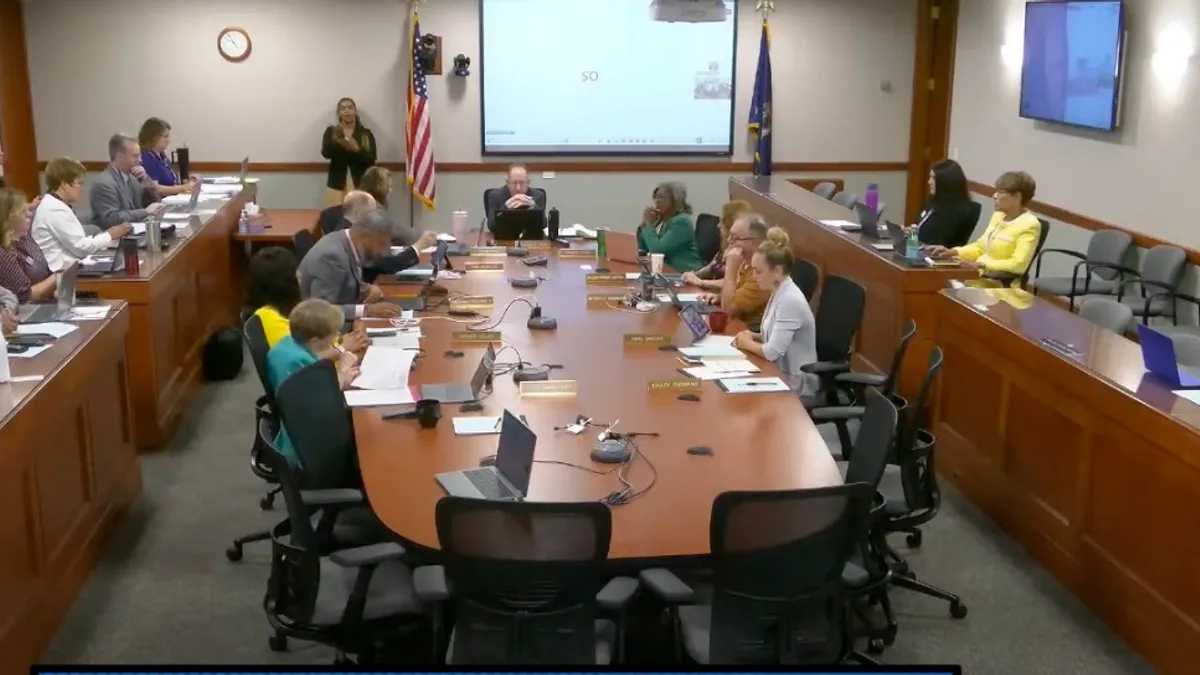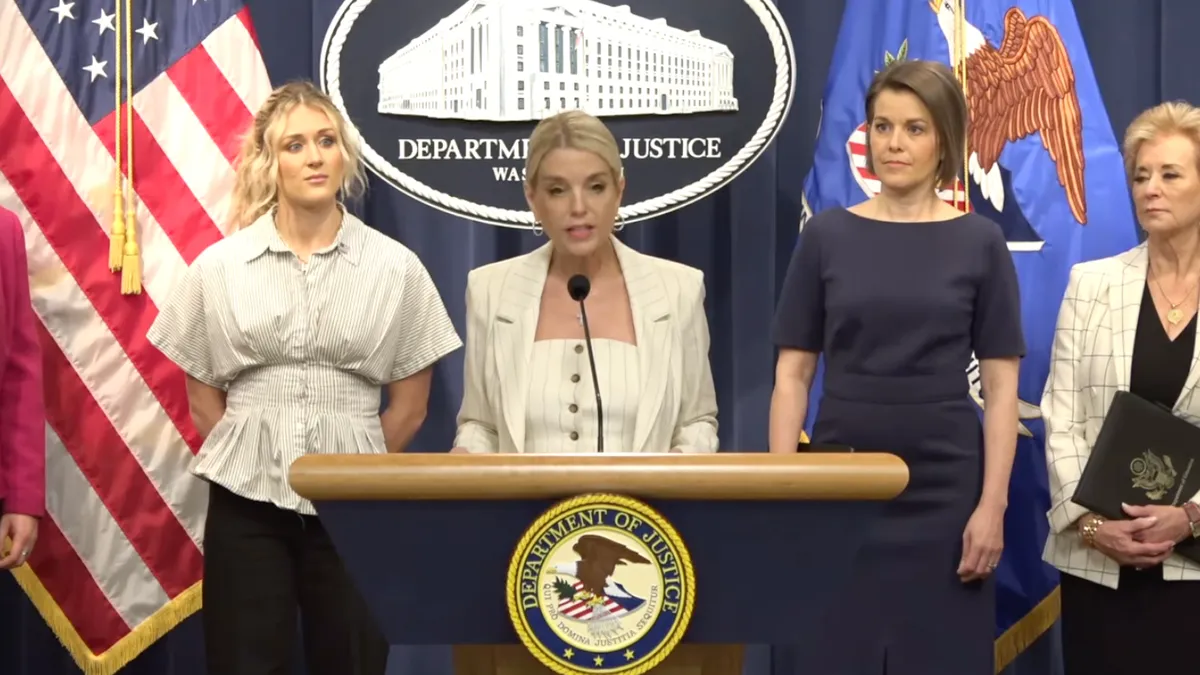The Michigan Department of Education has "fundamental misunderstandings about the scope of Section 504" that raise concerns about the state's past and future ability to comply with the disability civil rights law, said the U.S. Department of Education's Office for Civil Rights in a filing this month.
The accusations came in response to MDE's motion to dismiss OCR’s findings that the state harmed students with disabilities by sending incorrect guidance to school districts about make-up services for instructional time lost during pandemic school closures.
In its July 2 motion, MDE adamantly denied wrongdoing and challenged OCR's authority to enforce compliance with the federal Individuals with Disabilities Education Act. The state argues that monitoring for IDEA compliance is instead the responsibility of the Education Department’s Office of Special Education and Rehabilitative Services.
But in its Aug. 9 filing, OCR stood its ground, saying, "Of course, OCR does not enforce the IDEA. But MDE is wrong that this truism means that OCR cannot address MDE’s violations of the Department’s Section 504 regulations that ‘overlap with IDEA.’"
The intersection of Section 504 and IDEA in K-12 has been a source of confusion for decades. The Biden administration is seeking to clarify Section 504 alignment with other disability rights laws through proposed regulations that are expected to be released in November.
There has been broad concern nationally in K-12 that students with disabilities are underidentified for Section 504 accommodations. Students who have a disability under one or more of IDEA’s 13 disability categories can qualify for individualized special education services.
Students who qualify for Section 504 have a physical or mental disability that impacts a major life activity, such as breathing, walking or learning. Section 504-eligible students get accommodations to prevent discrimination on the basis of disability in an educational setting.
Students may be eligible for services and accommodations under both IDEA and Section 504.
OCR, in its response to Michigan's dismissal request, alleges the state is trying to insert "a new wedge between IDEA and Section 504 protections." That, OCR said, would have the "immediate effect" of limiting OCR’s enforcement authority for the Section 504 free appropriate public education rights of millions of students with disabilities protected by both Section 504 and IDEA.
In an emailed statement to K-12 Dive on Aug. 14, the Michigan Education Department said it received OCR's response and is reviewing it with its legal counsel. The state agency added that it "remains strongly committed to providing equal access to educational opportunities to all students in Michigan — including students with disabilities."
OCR defends its authority
OCR began investigating MDE for pandemic-era Section 504 violations in June 2022, and a year later alleged that the department issued guidance inconsistent with Section 504 rules. This, OCR says, led to students with disabilities receiving limited or no compensatory services to make up for guaranteed services that were lost due to pandemic school closures.
MDE countered that its guidance was correct, and that even if it weren't, the state cannot be held accountable for missteps taken at the district level. According to OCR, the state's argument that "it is powerless to address violations of federal civil rights laws by its school districts is legally unsupported."
Furthermore, MDE's position that a state's directions to local schools is beyond the reach of federal Education Department regulations is "patently absurd," OCR said. "Just as an SEA [state education agency] cannot legally issue guidance to LEAs [local education agencies] directing them not to build ramps for students who use wheelchairs, an SEA cannot legally issue guidance to LEAs directing them not to provide the proper processes or remedy for denials of FAPE."
By making the argument that the state is not responsible for actions at the local level, OCR said MDE is trying to "shield itself from any scrutiny" for Section 504 compliance failings.
State board debates issue
OCR's allegations of Section 504 violations in Michigan came up briefly at an Aug. 13 meeting of the Michigan State Board of Education.
Nikki Synder, a Republican board member, sought time at a future board meeting to discuss OCR's complaints against the state. Synder also requested future board discussion of a motion asking the state legislature to support an audit of both pandemic-era and current special education practices.
Board member Tom McMillin, a Republican, supported discussion for an audit, saying, "For some reason, our state refuses to look at compensatory education for special ed students, and how that was swept under the rug during COVID and post-COVID, and many of these kids, unfortunately have aged out of the system.”
The board, however, voted down both requests.
Board President Pamela Pugh, a Democrat, said that although students with disabilities are "a very important group of children that we have to be concerned about," the issue was being politicized. Pugh said she opposed adding discussion on the topic to a later board meeting since she anticipates the board will be updated on the OCR complaints in other ways.
Addressing the board members during a public comment period during the meeting, Marcie Lipsitt, an advocate for students with disabilities who filed the complaint at the center of the OCR probe, called it "shameful" that the board didn't support adding discussion on the matter to its agenda.
Voluntary compliance still available
Disability rights attorneys and advocates are watching the intensifying back-and-forth between OCR and MDE with interest. Typically, OCR findings of civil rights violations conclude with agreements that state or local school systems will remedy noncompliance.
But in this case, OCR says MDE has refused to come into compliance voluntarily. OCR has called for a hearing before an administrative law judge. OCR could recommend that the state's federal financial assistance be suspended or terminated until correction of the alleged noncompliance.
It's been 27 years since an administrative hearing ended with a decision to terminate federal funds, according to an Education Department spokesperson.
"Schools and districts faced unique challenges during the pandemic, but students with disabilities never lost their right to equal educational opportunity under Section 504," the Education Department spokesperson said in an Aug. 14 email. "These students deserve for MDE to make things right, and we expect the administrative law judge will decide that MDE is legally required to do so."
MDE can come into voluntary compliance at any point, the spokesperson said.
The OCR-Michigan situation is unique, said Jose Martín, an attorney with Richards, Lindsay & Martín law firm in Austin, Texas, which represents school districts. But he said he's not sure what lessons other states and districts can yield from the debate other than the need to consider individualized compensatory services when services for students with disabilities lapse for whatever reason.
"But most districts know that already," he said.







 Dive Awards
Dive Awards















